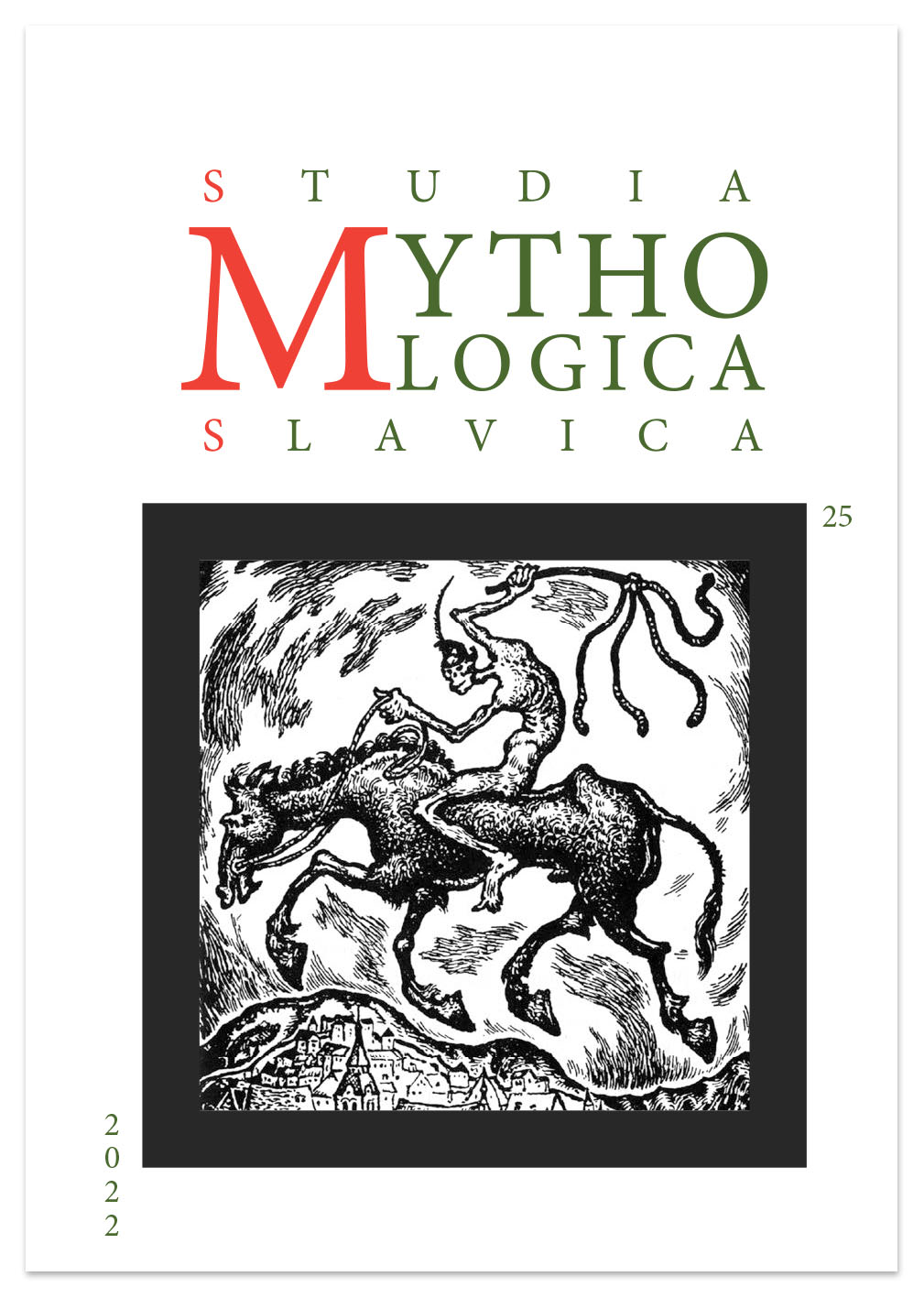Življenje s COVID-19 v spletni folklori
DOI:
https://doi.org/10.3986/SMS20222503Ključne besede:
spletna folklora, memi, korona, COVID-19, virus, pandemijaPovzetek
Članek obravnava meme o virusu COVID-19, ki so bili deljeni na Facebook skupini Belief Narrative Network’s od njenega začetka aprila 2020 do konca avgusta 2020 (ko je bil ta članek napisan), torej med prvim valom pandemije. Avtorica obravnava glavne skrbi članov skupine, ki se odražajo v temah, ki jih memi obravnavajo, in vloge, ki so jih imeli ti v njihovem življenju.
Prenosi
Literatura
Aslan, Erhan, 2021: When the Internet Gets ‘Coronafied’: Pandemic Creativity and Humour in Internet Memes. In: Jones, Rodney H. (ed), Viral discourse. Cambridge: Cambridge University Press (Cambridge Elements. Elements in Applied Linguistics), 49−60.
Babič, Saša, 2020: Waste and dirt in short folklore forms. Traditiones, 49/1, 125–139.
Bischetti, Luca; Canal, Paolo; Bambini, Valentina, 2021: Funny but aversive: A large-scale survey of the emotional response to Covid-19 humor in the Italian population during the lockdown. Lingua 249, 102963; www.sciencedirect.com.
Blank, Trevor J., 2009: Introduction. Toward a Conceptual Framework for the Study of Folklore and the Internet. In: Blank J. Trevor (ed.), Folklore and the Internet. Vernacular Expression in a Digital World. Logan: Utah State University Press, 1−20.
Blaber, Zlatinka; Gougoumanova, Guergana; Palatnik, Barry, 2021: COVID-19 Editorial Cartoons: Theories of Humor Perspectives. Israeli Journal of Humor Research, 10/1, 6–42.
Blank, Trevor J., 2012: Introduction: Pattern in the Virtual Folk Culture of Computer-Mediated Communication. In: Folk Culture in the Digital Age. The Emergent Dynamics of Human Interaction. Blank J. Trevor (ed.), Logan: Utah State University Press, 1−24.
Certeau, Michel de, 2007: Iznajdba vsakdanjosti I: Umetnost delovanja. Ljubljana: Studia Humanitatis.
Chłopicki, Władysław; Brzozowska, Dorota, 2021: Sophisticated humor against COVID-19: the Polish case. Humor 34/2, 201–227.
Dégh, Linda, 1995: Narratives in Society: A Performer-centered Study of Narration (Folklore Fellows Communication 255). Helsinki: Academia Scientiarum Fennica.
Dégh, Linda, 2001: Legend and Belief. Dialectics of a Folklore Genre. Bloomington and Indianapolis: Indiana University Press.
Dundes, Alan; Pagter, Carl R., 1975: Urban Folklore from the Paperwork Empire. Austin, Texas: American Folklore Society.
Dundes, Alan, 1979: Analytic Essays in Folklore (Studies in Folklore 2). The Hague-Paris-New York Mouton Publishers.
Dynel, Marta, 2021: COVID-19 memes going viral: On the multiple multimodal voices behind face masks. Discourse & Society 32/2, 175–195.
Ellis, Bill, 2003: Aliens, Ghosts, and Cults. Legends We Live. Jackson: University Press of Mississippi.
Fine, Garry Alan, 1985: Social change and folklore. The interpretation of social structure and culture. Arv. Nordic Yearbook of Folklore 41, 7−15.
Hafstein, Valdimar Tr., 2000: The Elves' Point of View. Cultural identity in Contemporary Icelandic Elf-Tradition. Fabula 41, 87−104.
Heimo, Anne; Koski, Kaarina, 2014: Internet Memes as Statements and Entertainment. FF Network 44 (July), 4−12.
Honko, Lauri, 1962, Geisterglaube in Ingermanland (Folklore Fellows Communication 185). Helsinki: Academia scientiarum Fennica.
McNeill, Lynne S., 2009: The end of the internet: a folk response to the provision of infinite choice. In: Blank J. Trevor (ed.), Folklore and the Internet. Logan: Utah State University Press, 80–97.
Miller, Daniel; Costa, Elisabetta; Haynes, Nell; Mcdonald, Tom; Nicolescu, Razvan; Sinanan, Jolynna; Spyer, Juliano; Venkatraman, Shriram; Wang, Xinyuan, 2016: How the World Changed Social Media. London: UCL Press.
Nicholls, Christine, 2020: Online Humour, Cartoons, Videos, Memes, Jokes and Laughter in the Epoch of the Coronavirus. Text Matters 10, 274−318.
Olah, Andrew R.; Hempelmann, Christian F., 2021: Humor in the age of coronavirus: a recapitulation and a call to action. Humor 34/2, 329–338.
Pulos, Rick, 2020: COVID-19 crisis memes, rhetorical arena theory and Multimodality. Journal of Science Communication 19/07, 1−30.
Sebba-Elran, Tsafi, 2021: A pandemic of jokes? The Israeli COVID-19 meme and the construction of a collective response to risk. Humor 34/2, 229–257.
Shifman, Limor, 2014: Memes in Digital Culture. Cambridge: The MIT Press.
Strick, Madelijn, 2021: Funny and meaningful: media messages that are humorous and moving provide optimal consolation in corona times. Humor 34/2, 155–176.
Tangherlini, Timothy R., 1994: Interpreting Legend. Danish Storytellers and Their Repertoires. New York, London: Garland Publishing.
Ward, Donald, 1976: American and European narratives as socio-psychological indicators. Studia Fennica 20, 348−353.
Prenosi
Objavljeno
Verzije
- 2022-10-28 (2)
- 2022-10-12 (1)
Kako citirati
Številka
Rubrike
Licenca

To delo je licencirano pod Creative Commons Priznanje avtorstva-Nekomercialno-Brez predelav 4.0 mednarodno licenco.
Avtorji jamčijo, da je delo njihova avtorska stvaritev, da v njem niso kršene avtorske pravice tretjih oseb ali kake druge pravice. V primeru zahtevkov tretjih oseb se avtorji zavezujejo, da bodo varovali interese založnika ter da bodo povrnili morebitno škodo.
Podrobneje v rubriki: Prispevki





